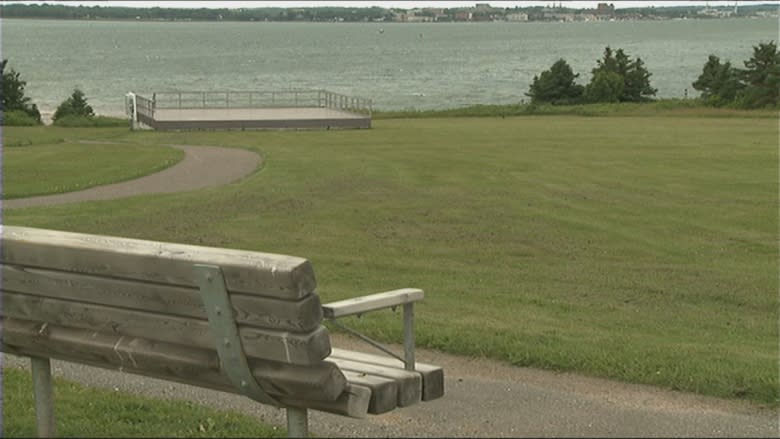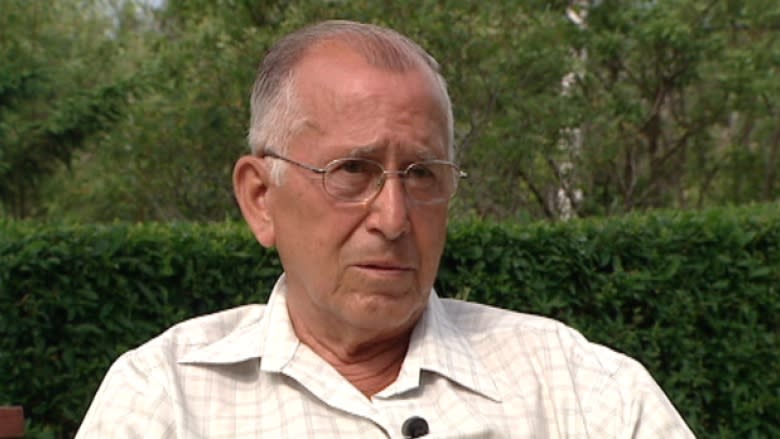'Extirpate this execrable race': The dark history of Jeffery Amherst
As an initiative to change the name of Port-la-Joye–Fort Amherst National Historic Site on P.E.I. is being debated, a researcher weighs in on the history of Jeffery Amherst.
Mi'kmaq elders and the Mi'kmaq Confederacy of P.E.I. have raised questions about the honouring of Amherst, by naming sites after him — arguing he was not only an enemy of Indigenous people, but worse.
To say Amherst was a decorated military man would be an understatement. He was a Field Marshal in the British Army. He served during the Seven Years' War in New France or modern day Nova Scotia. He also held the offices of Governor of Quebec as well as Crown Governor of Virginia and was named a Lord.
- Mi'kmaq Confederacy mulling Indigenous names for Port-la-Joye–Fort Amherst site
- Parks Canada to consult Mi'kmaq of P.E.I. about revising national historic site name
But scholars have long debated Amherst's actions during his service, including allegations he advocated the use of biological warfare, through smallpox blankets, to kill Indigenous peoples.
'Go find the letters'
Peter d'Errico, a professor emeritus of legal studies at the University of Massachusetts, said there was no consensus on the allegations.
"For as many rumours saying that, there were counters saying that 'No, no, that's just myth,'" said d'Errico.
But d'Errico's interest was piqued and, with encouragement from Sioux actor and musician Floyd Westerman, he set out to find the answer.
"He said, 'Go find the letters, if there were any letters between Amherst or anybody about smallpox,'" said d'Errico.
'Inoculate the Indians'
d'Errico did find evidence of a plot to infect Indigenous people.
The first letter was from a Swiss mercenary named Henry Bouquet who suggested giving out smallpox infected blankets to, "inoculate the Indians."
Later d'Errico found a letter indicating Amherst was keen on the idea.
"[There was] one from Amherst himself to Bouquet saying, 'This is a good idea to spread smallpox just be careful you don't get it yourself,'" said d'Errico.
The text of Amherst's letter reads;
"You will do well to try to inoculate the Indians by means of blankets, as well as to try every other method that can serve to extirpate this execrable race. I should be very glad your scheme for hunting them down by dogs could take effect, but England is at too great a distance to think of that at present," wrote Amherst in a 1763 letter.
d'Errico wrote in his study of Amherst that "None of these other letters show a deranged mind or an obsession with cruelty." Amherst's "venom" was only directed at Indigenous peoples, he added.
What's in a name?
While the debate continues over whether to change the name of Port-la-Joye–Fort Amherst in P.E.I., Amherst's namesake college in Amherst, Massachusetts has already taken steps to move away from his name.
"It was just last week, or the week before, Amherst College finally got rid of Lord Jeff as its official mascot for its sport teams," said d'Errico.
"It became increasingly uncomfortable for people to defend Amherst and the naming of Amherst."
Still d'Errico doesn't think the name of Amherst should be wiped off the map entirely.
"I don't really see a need to go and change all the names. Sometimes it's important to keep names so that we get an excuse to look at the history," said d'Errico.
'We're not trying to change history'
Daniel Paul, a Mi'kmaq elder and author from Nova Scotia, doesn't agree, and has added his name to a petition asking that Amherst's name be removed from the historic site in P.E.I.
"Who in the hell is saying anything about taking them out of history?" said Paul.
"They're in the history books. Adolf Hitler's in the history books, Pol Pot is there, Stalin is there ... That's where they belong, not being honoured as heroes."
Paul has also lobbied to have other names removed from places, and have them replaced by Indigenous names. He says he's run into "the same brick wall, 'you can't change history', well I keep telling them we're not trying to change history."
d'Errico also commented on the issue of honouring certain historical figures. "How do we deal with the fact that many of the people we have on pedestals, sometimes literally, have not only clay feet, but maybe evil hearts when they were alive?"
Parks Canada has decided the name Amherst will remain on the P.E.I. site, but says it will consider also adding a Mi'kmaq name. However the debate over that decision hasn't ended.
- MORE P.E.I. NEWS | On hold for a solution: Charlottetown man wants old phone booths fixed
- MORE P.E.I. NEWS | Green Gables opens for season on May 1



